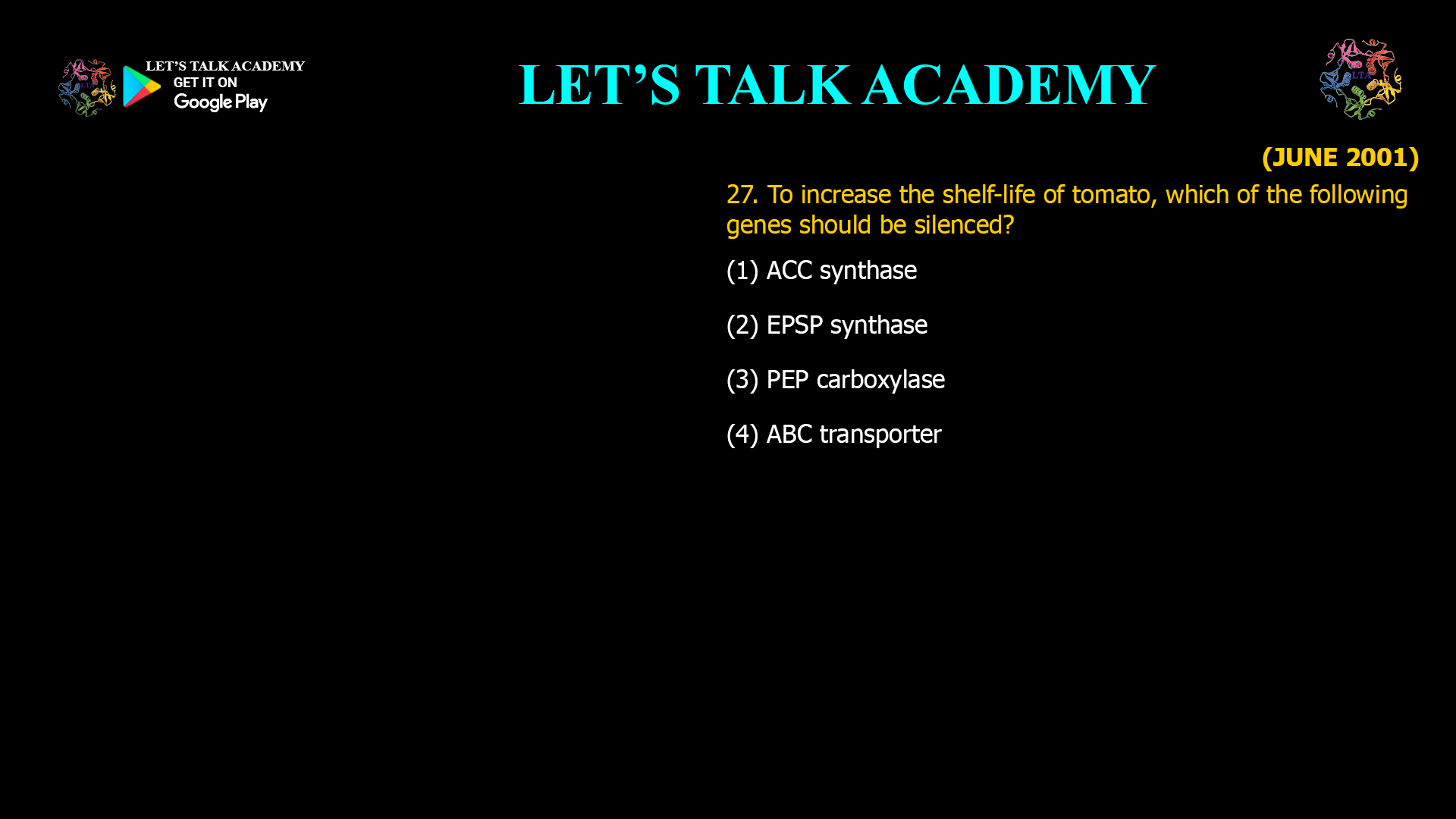- To increase the shelf-life of tomato, which of the following genes should be silenced?
(1) ACC synthase (2) EPSP synthase
(3) PEP carboxylase (4) ABC transporterTo increase tomato shelf‑life, the gene that should be silenced is (1) ACC synthase.
Why ACC synthase is the correct target
Ethylene is the key hormone that triggers and accelerates climacteric fruit ripening, including tomato softening and senescence. ACC synthase (ACS) converts S‑adenosylmethionine to 1‑aminocyclopropane‑1‑carboxylic acid (ACC), the direct precursor of ethylene; lowering ACS expression reduces ACC and therefore ethylene production, delaying ripening and extending shelf‑life. Transgenic strategies that down‑regulate ethylene biosynthetic genes (ACS/ACO) or cell‑wall‑degrading enzymes (e.g., polygalacturonase in Flavr Savr) are standard approaches to create long‑lasting tomatoes.
Why the other options are not suitable
-
(2) EPSP synthase
-
EPSP synthase is a chloroplast enzyme in the shikimate pathway and the target of glyphosate herbicide, mainly used for engineering herbicide tolerance.
-
Silencing it would disrupt aromatic amino acid biosynthesis and kill or severely stunt the plant rather than selectively increasing fruit shelf‑life.
-
-
(3) PEP carboxylase
-
PEP carboxylase is crucial for C₄ and CAM carbon fixation and various anaplerotic reactions; in tomato (a C₃ plant) it still participates in primary metabolism and stomatal regulation.
-
Its suppression would affect photosynthesis and growth, not specifically delay ripening.
-
-
(4) ABC transporter
-
Plant ABC transporters are a large family involved in xenobiotic efflux, hormone transport, lipid deposition, stress responses and many other functions.
-
Non‑specific silencing of an ABC transporter is unlikely to give a clean, targeted increase in shelf‑life and would risk broad developmental defects.
-
SEO‑oriented introduction (for article use)
Improving tomato shelf‑life through genetic engineering focuses on reducing ethylene biosynthesis, because ethylene drives ripening and post‑harvest softening. By silencing ACC synthase, the key enzyme that produces the ethylene precursor ACC, breeders can lower ethylene levels, slow ripening, and keep tomatoes firm for longer, while genes like EPSP synthase, PEP carboxylase, and generic ABC transporters play unrelated roles in primary metabolism or transport and are not ideal shelf‑life targets.
-



